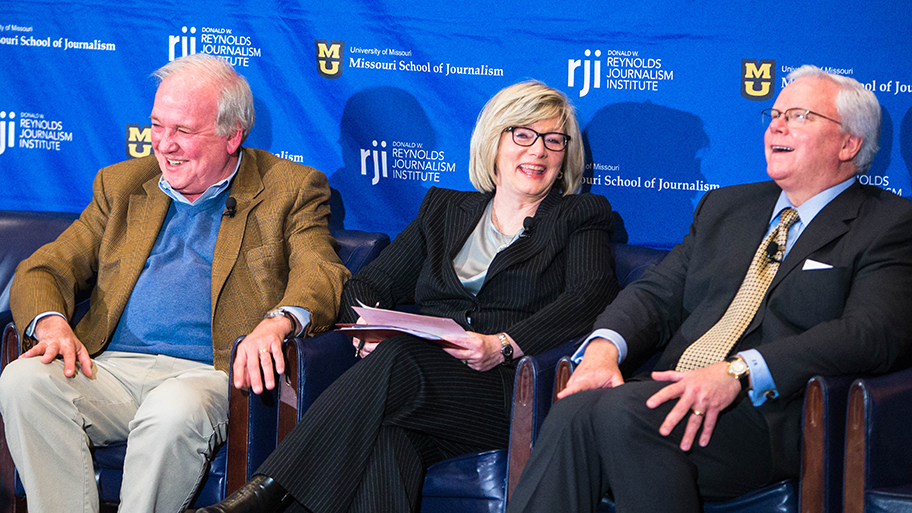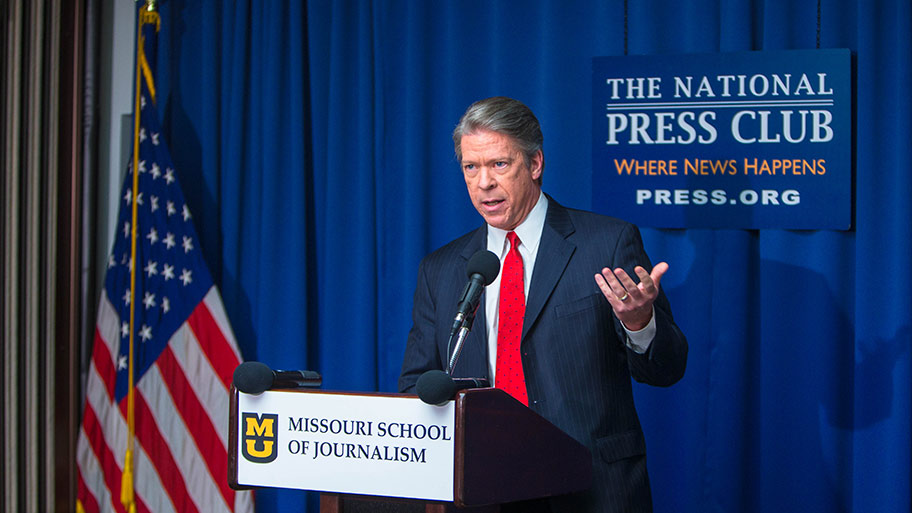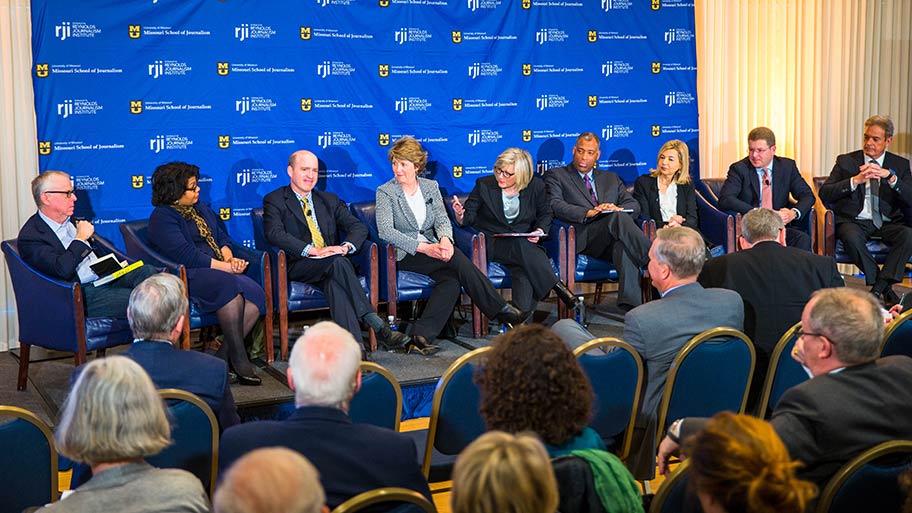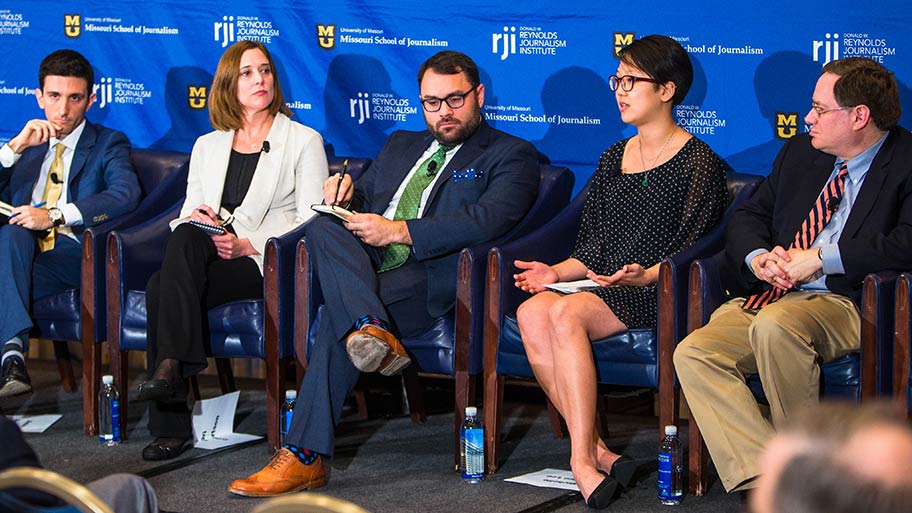
Fact-Checking, Fake News and the Future of Political Reporting | Hurley Symposium 2017
What’s fact and what’s fake were questions that dominated the 2016 election campaign. Now that Donald J. Trump has been sworn in as the 45th U.S. president, what new challenges face journalists as they seek to cover the White House and Congress accurately and fairly?
White House correspondents, Washington bureau chiefs, fact-checking experts, media critics and former White House officials gathered in Washington, D.C., on March 9, 2017, to discuss their strategies for covering the new administration.
Former White House officials: Trump, conventional press corps face new media environment
WASHINGTON — Two former White House officials, a Democrat and a Republican, believe the Trump administration has been hampered in getting its messages out by the rapidly evolving media environment and a president who likes to tweet. Mike McCurry, press secretary to President Bill Clinton, and Ed Rogers, a political strategist for presidents Ronald Reagan … Continued
CBS’ Major Garrett to journalists: Look to history for comfort during early Trump presidency
WASHINGTON — When CBS News Chief White House Correspondent Major Garrett hears journalists worrying about being labeled the enemy of the Trump administration, he points to history. “The words are extreme, but [President Trump’s] actions aren’t as bad as Nixon and Obama,” he said Thursday at the Hurley Symposium in Washington, D.C. “It’s important that … Continued
White House press corps: We’re not whining, we’re working
WASHINGTON — “We’ve got to stop whining and just do our jobs,” Fox News Chief White House Correspondent John Roberts said Thursday at the 2017 Hurley Symposium, “Fact-Checking, Fake News and the Future of Political Reporting.” The question of how to approach the Trump administration’s antagonistic relationship with the press — and whether one could … Continued
Fact-checkers believe appetite for accuracy will grow despite a lack of trust in news
WASHINGTON — Journalists for the three leading fact-checking organizations say their role is to examine the claims of politicians and present the facts, not persuade the public of certain conclusions. The fact-checkers spoke Thursday at the 2017 Hurley Symposium titled “Fact-Checking, Fake News and the Future of Political Reporting,” hosted by the National Press Club. … Continued
Faux news in the digital age: Appendix 3
Clickbait beliefs I did not know what clickbait was until taking this survey. Frequency Percent Valid Percent Cumulative Percent Valid 1- Strongly Agree 33 12.4 12.4 12.4 2 35 13.2 13.2 25.6 3 45 16.9 16.9 42.5 4 41 15.4 15.4 57.9 5- Strongly Disagree 112 42.1 42.1 100.0 Total 266 100.0 100.0 … Continued
Faux news in the digital age: Appendix 2
I have never shared a fake news story on social media. Frequency Percent Valid Percent Cumulative Percent Valid 0% Not at all confident 5 1.9 1.9 1.9 10% 9 3.4 3.4 5.3 20% 7 2.6 2.6 7.9 30% 10 3.8 3.8 11.7 40% 17 6.4 6.4 18.0 50% 21 7.9 7.9 25.9 60% 21 … Continued
Faux news in the digital age: Appendix 1
Which of the following social media websites do you access most often? Frequency Percent Valid Percent Cumulative Percent Valid Twitter 36 13.5 13.5 13.5 Facebook 195 73.3 73.3 86.8 Pinterest 4 1.5 1.5 88.3 Instagram 19 7.1 7.1 95.5 Snapchat 3 1.1 1.1 96.6 Tumblr 5 1.9 1.9 98.5 I don’t use any social … Continued
Faux news in the digital age: Survey results
American adults are more confident than they should be about their ability to distinguish between real and fake news headlines. They also believe they’re much less likely than their friends to share fake news stories on social media, but when pressed, nearly six in 10 will admit they’ve probably shared such a story by accident. … Continued




